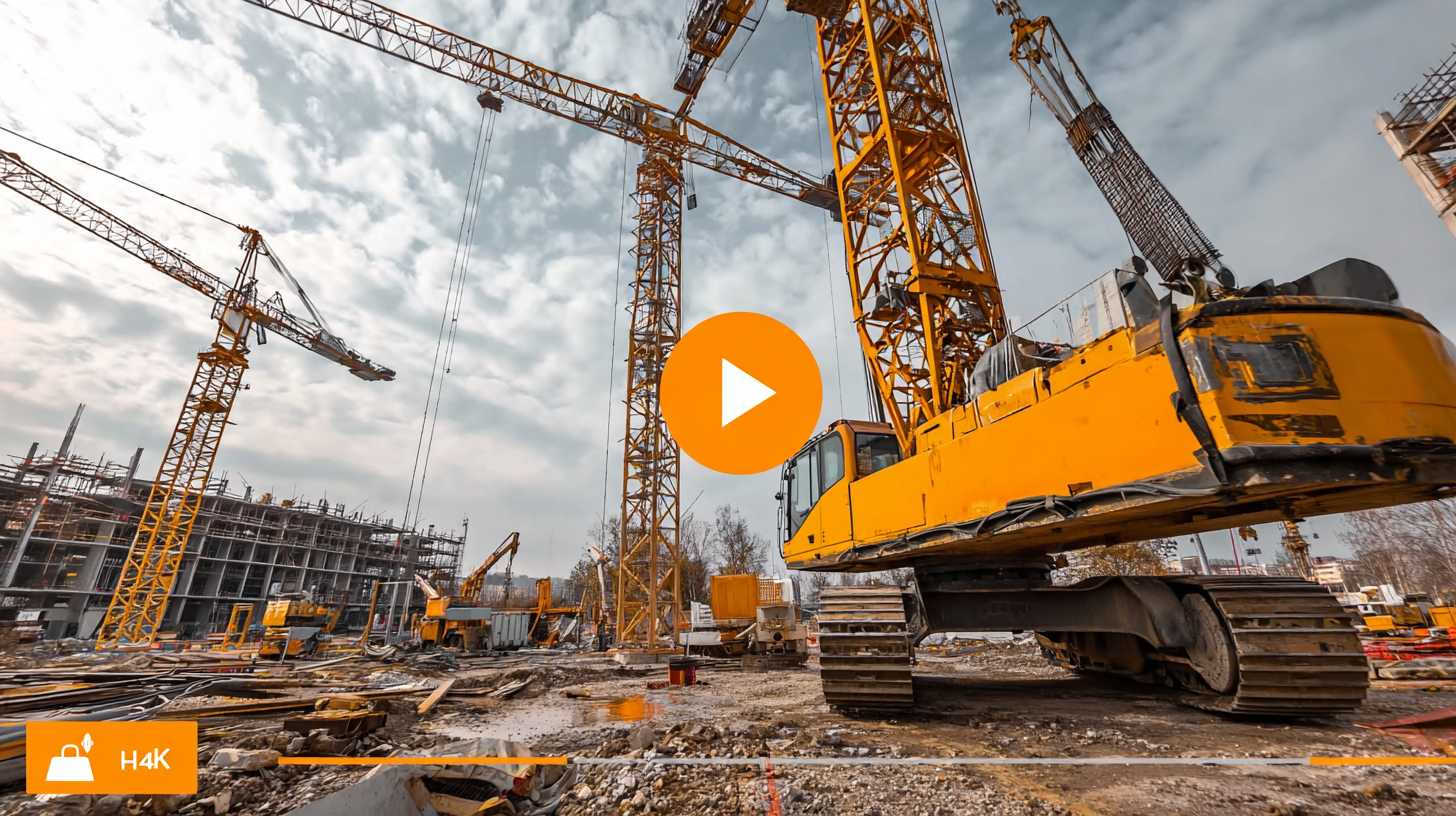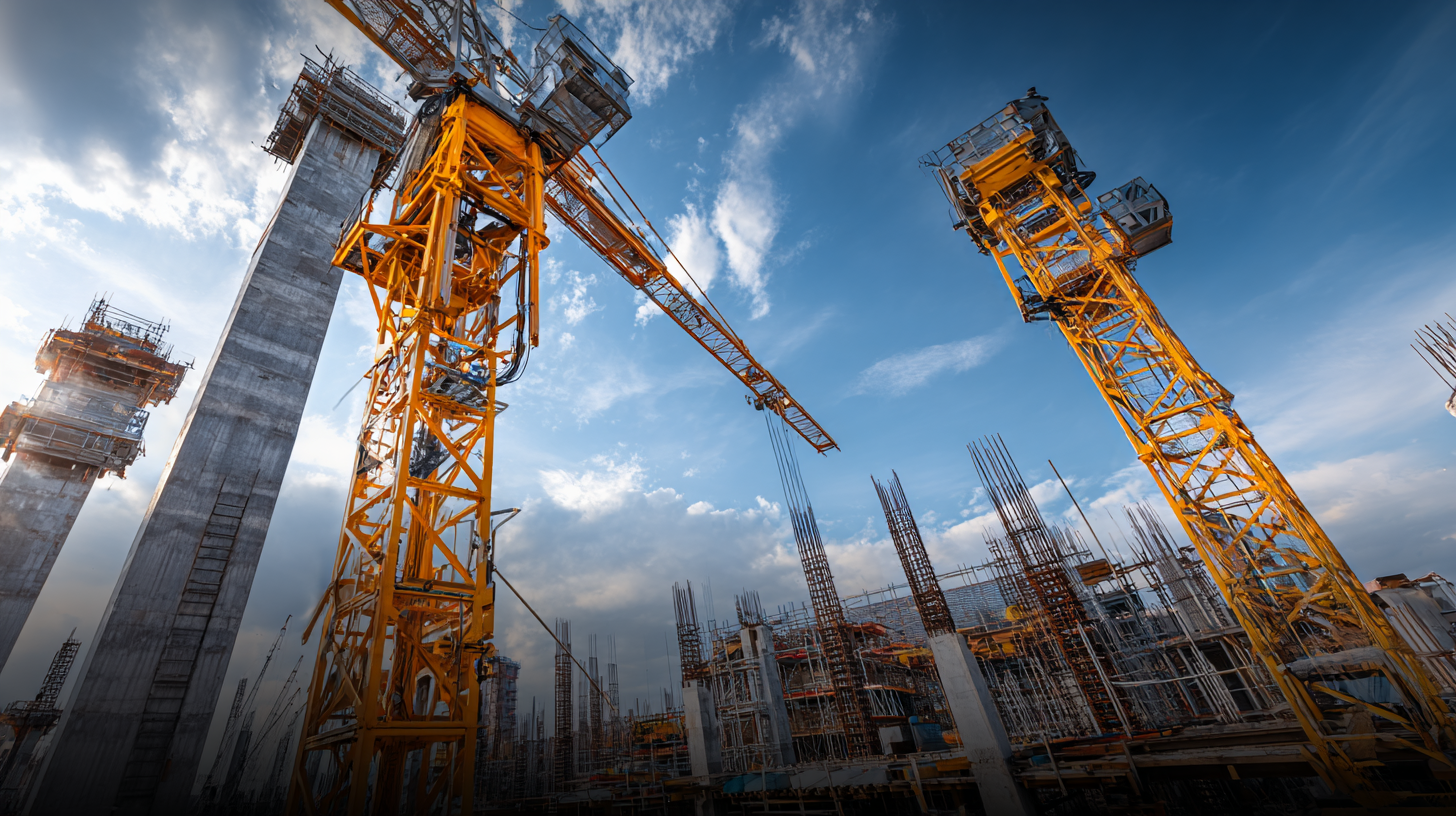Unlocking Success in Best Construction Projects by 2025 Market Insights and Strategies
As the global construction landscape evolves, the importance of strategic planning and market insights in navigating construction projects becomes paramount. According to the Global Construction 2030 report, the global construction market is expected to reach a staggering $15.5 trillion by 2030, showcasing an annual growth rate of 3.9%. This growth is indicative of the dynamic nature of construction projects, particularly in regions like China, which is noted for its robust manufacturing capabilities and extensive export footprint. With the rising demand for innovative construction solutions and sustainable practices, unlocking success in construction projects by 2025 requires an understanding of market trends, investment opportunities, and technological advancements that shape the industry. As stakeholders anticipate significant shifts, leveraging these insights becomes crucial for delivering projects that not only meet current demands but also pave the way for future advancements in global construction.

Strategies for Enhancing Quality in Construction Projects by 2025
In the ever-evolving construction industry, the quest for quality remains paramount as we approach 2025. According to the “Global Construction Industry Trends Report,” quality management systems implemented in construction projects can lead to a 20% reduction in rework and defects. This not only saves costs but also significantly enhances project timelines, thereby increasing overall client satisfaction. As leaders in construction look to optimize their operations, incorporating advanced quality assurance protocols becomes essential.
One effective strategy for enhancing quality is the adoption of Building Information Modeling (BIM). Recent studies have shown that projects utilizing BIM experience a decrease in construction time by up to 7% and a reduction in costs by approximately 10-15%. BIM facilitates better collaboration among stakeholders, allowing real-time updates and a clearer understanding of project parameters, which leads to fewer errors and improved outcomes. As the industry moves toward digital solutions, emphasis on training professionals to leverage these technologies will be crucial in achieving superior quality benchmarks by 2025.
Unlocking Success in Best Construction Projects by 2025: Market Insights and Strategies
The Role of Technology in Elevating China’s Construction Standards
In recent years, technology has played a crucial role in reshaping the construction landscape in China, driving the country's ambitious goals to elevate building standards by 2025. Innovations such as Building Information Modeling (BIM), drones, and augmented reality are not just enhancing efficiency; they are revolutionizing the way projects are managed from inception to completion. These tools provide real-time insights and enable better collaboration among stakeholders, ensuring that projects meet their deadlines and budgets while maintaining high-quality standards.

Moreover, the integration of smart technologies into construction practices fosters sustainable development. Advanced analytics and IoT applications allow for precise monitoring of resources and energy consumption, minimizing waste and enhancing the overall environmental footprint of construction projects. As the industry moves towards adopting these technologies, it paves the way for a more resilient and competitive construction sector, positioning China as a leader in global construction standards. Embracing technology not only boosts productivity but also enhances safety protocols, paving the path for innovative approaches to traditional practices.
Market Trends Shaping the Future of China’s Construction Industry
The construction industry in China is poised for significant transformation as it navigates market trends that shape its future. Notably, the modular construction sector within the Asia-Pacific region is projected to witness robust growth. According to industry analyses, the market size for modular building systems, categorized into permanent modular construction (PMC) and relocatable modular construction, is expected to expand significantly by 2025. This innovation not only improves efficiency and reduces construction time but also aligns with environmental goals as it often minimizes waste and energy consumption.
Moreover, the decarbonization of construction materials is becoming increasingly critical. Reports indicate that direct carbon emissions from the construction and building operations contribute substantially to China's total carbon footprint, making it imperative for the industry to adopt sustainable practices. Research highlights that concrete, steel, and wood, key materials in construction, will undergo transformations to reduce their environmental impact, in response to the nation's target of achieving net-zero carbon emissions over the next four decades. The integration of artificial intelligence in construction further enhances precision, empowering stakeholders to optimize processes while addressing the changing demands of the market.

Building Global Partnerships: Lessons from Successful Projects
In the ever-evolving construction industry, building global partnerships has proven to be a cornerstone of successful projects. The collaboration between diverse teams brings together a wealth of knowledge and experience, allowing for innovative solutions to emerge. By fostering strong relationships across borders, companies can leverage local expertise while also tapping into global best practices. This synergy is especially crucial in the face of complex challenges such as regulatory compliance, cultural differences, and project management intricacies.
Lessons from successful projects highlight the importance of clear communication and mutual respect among partners. Establishing transparent lines of dialogue ensures that all stakeholders are aligned with project goals and expectations. Furthermore, embracing a culture of collaboration allows teams to address issues proactively, adapt to changing circumstances, and ultimately drive project success. As the industry looks toward 2025, nurturing these global partnerships will not only provide a competitive edge but also contribute to sustainable growth and innovation within the construction sector.
Sustainable Practices in Construction: A Path to Global Recognition
Sustainable practices in construction are becoming a crucial focus as the industry moves towards 2025. According to a recent report by the World Green Building Council, adopting green building practices can reduce greenhouse gas emissions by up to 40%. This shift not only plays a significant role in combating climate change but also enhances the reputation of construction companies globally. With clients increasingly prioritizing sustainability, firms that invest in eco-friendly solutions are positioning themselves for competitive advantage in a rapidly evolving market.
Incorporating sustainable materials and practices also presents financial benefits. A study conducted by McKinsey & Company found that sustainable construction practices often lead to operational cost savings of around 20-30% over the lifecycle of a building. As governments and organizations worldwide enforce stricter environmental regulations, construction companies that embrace sustainability are not just adhering to compliance mandates but are also paving their way towards market leadership. The path to global recognition in the construction sector is indeed intertwined with the commitment to sustainable development, making it an essential strategy for success by 2025.
Unlocking Success in Best Construction Projects by 2025 Market Insights and Strategies
| Project Type | Location | Sustainability Rating | Investment ($ Millions) | Completion Year | Innovative Practices |
|---|---|---|---|---|---|
| Residential | New York, USA | LEED Platinum | 150 | 2025 | Smart Home Technology |
| Commercial | London, UK | BREEAM Outstanding | 200 | 2024 | Green Roofs, Solar Panels |
| Infrastructure | Tokyo, Japan | ISO 14001 | 300 | 2023 | Recycled Materials |
| Hospitality | Sydney, Australia | Green Star | 100 | 2025 | Energy Efficient Appliances |
